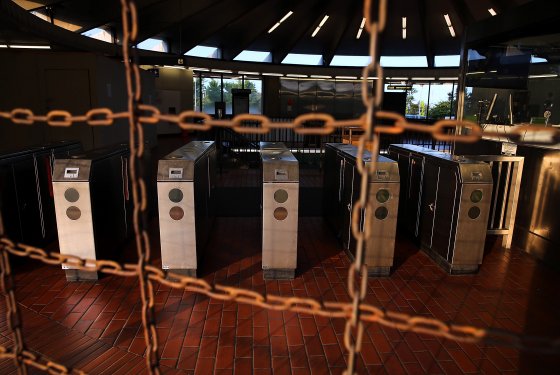
BART Strike Shows Privatization’s Dark Side:
Just compare these two reactions to the BART strike. One is from an executive of a ride-share company called Avego, which allows drivers to open up their cars (for a fee) to strangers looking for a lift:
“All you need to do is book a trip from San Francisco to wherever you’re going home for tonight or every day this week there’s a strike,” Paul Steinberg, director of Americas for Avego, said in an interview on “Bloomberg West.”
And another is from a working-class Oakland resident who uses BART to get to work every day:
Ilysha Kipnis of Oakland expected limited BART service, not zero service. Because buses and ferries were jammed, she decided to take a bus back home to wait out the traffic.
“We’re so reliant on public transportation,” said Kipnis, who works at a salon in San Francisco. “Hopefully, (BART directors) understand how much we need the trains to run. … I really need it.”
Notice the split here. The tech executive assumes that people who are stranded by BART can simply arrange for an alternative way of getting to their destination. (Incidentally, his company is also the one running a helicopters-for-commuters promotion to take advantage of the BART strike.) But the Oakland resident doesn’t work at Google or Facebook, where free shuttle service is provided, and she can’t easily get herself around by car. For the tech executive, a BART strike is an annoyance. For the salon worker, it’s a threat to basic existence.
